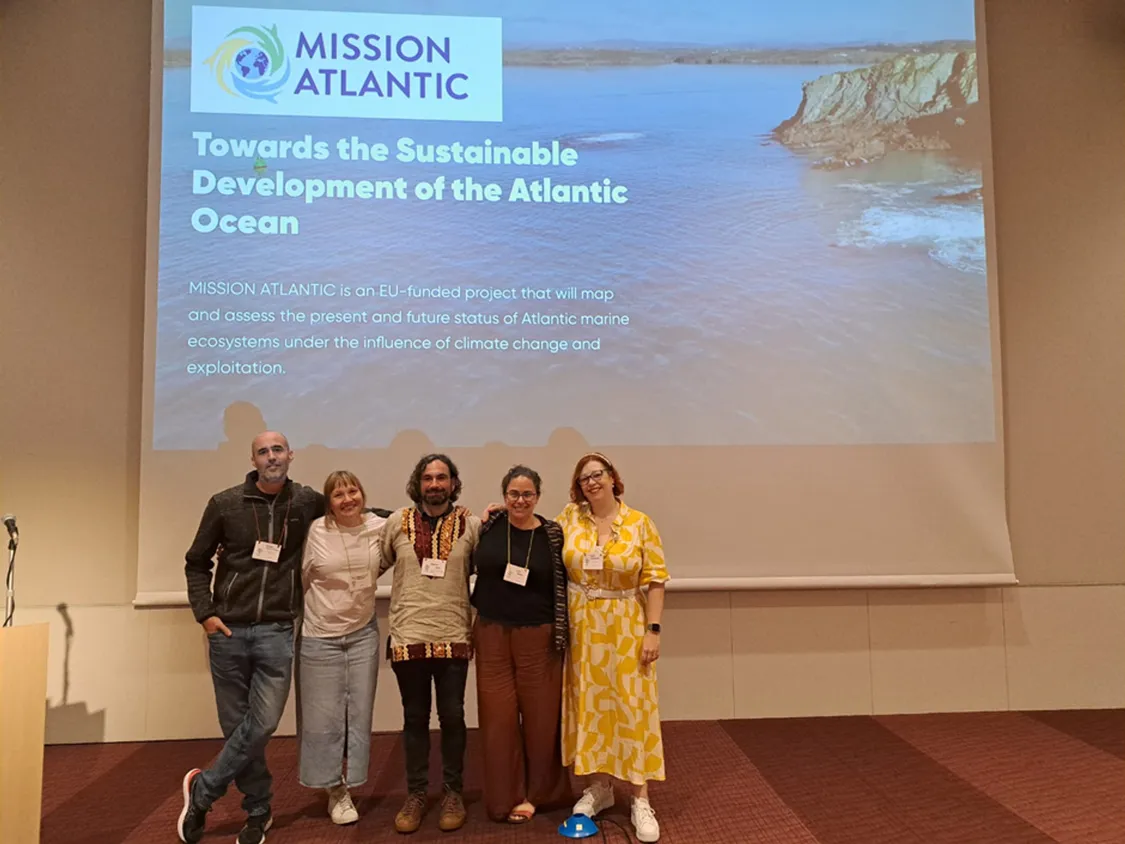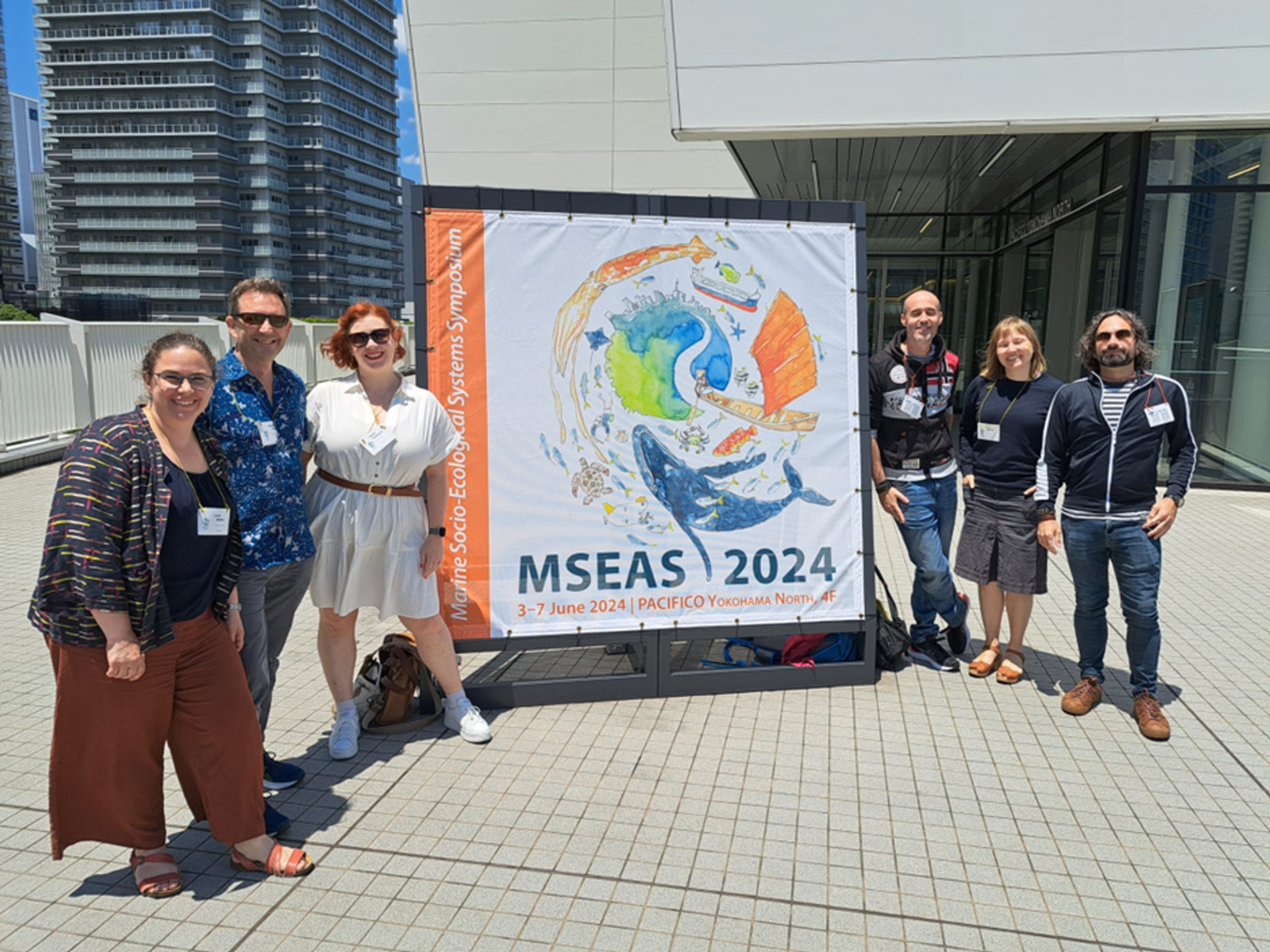MISSION ATLANTIC representatives at the MSEAS 2024 (from right to left): Marcos Llope, Susa Niiranen, Alfredo García de Vinuesa, Debbi Pedreschi, Benjamin Planque, Lucie Buttay
The Marine Socio-Ecological Systems Symposium (MSEAS) took place on June 3-7 2024, in Yokohama, Japan.
This Symposium was initially organised to take place in May 2020, but was postponed due to the COVID-19 pandemic until June 3-7, 2024. The focus was laid on ‘Managing for sustainable use of the Earth's marine and coastal systems’.
The challenge in supporting enhanced and sustainable uses of the marine domain was stated as “to enable current and future growth in the blue economy, and the associated development of coastal livelihoods, while equally supporting sustainable social, economic and environmental outcomes. This challenge explicitly involves managing human impacts on the earth's marine and coastal systems and managing the feedback of these impacts on coastal communities, industries, stakeholders, and society in general. To fully address this topic, an evaluation of marine socio-ecological systems is warranted. Exploration of tools to specifically evaluate these socio-ecological systems is needed, timely, and has not yet systematically been done.” Source: MSEAS Background
MISSION ATLANTIC contributes to addressing these challenges through research and development of tools, supporting Integrated Ecosystem Assessment (IEA) operations, Case Study interactions, and stakeholder engagement.
In this sense, for MISSION ATLANTIC, important highlights were the oral presentations on project research findings by:
- Benjamin Planque on ‘Causal modelling of climate-fish-fisheries. Confronting conceptual models with data’.
- Susa Niiranen on ‘Combining numbers with expert knowledge: Stakeholder guided ecosystem risk assessment of multiple ocean uses and their trade-offs’.
- Debbi Pedreschi on ‘Cumulative effects in integrated ecosystem assessments’.
- Marcos Llope on ‘Fisheries, non-renewables and migration off west Africa, an integrated assessment of the Canary Current socio-ecosystem’.
Read more in the Book of Abstracts.

MISSION ATLANTIC representatives at the MSEAS 2024 (from right to left): Debbi Pedreschi, Lucie Buttay, Marcos Llope, Susa Niiranen, Alfredo García de Vinuesa. Photo Credit: Benjamin Planque.
